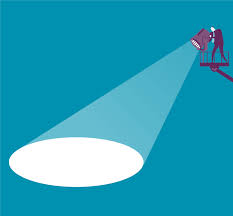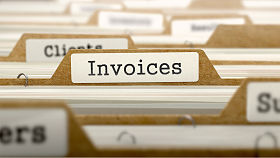You’re a sole trader running a small business. You’re feeling comfortable with the whole annual self-assessment tax process and you’ve mastered Excel spread-sheets. But, brace yourself. The government has planned a big digital overhaul of the tax system with a raft of new tax changes coming your way.
 The rationale behind the “Making Tax Digital” plan is HMRC’s belief that a lot of tax goes unpaid because of the mistakes and poor record keeping made by small businesses when preparing and filling out their tax returns.
The rationale behind the “Making Tax Digital” plan is HMRC’s belief that a lot of tax goes unpaid because of the mistakes and poor record keeping made by small businesses when preparing and filling out their tax returns.
HMRC believe that automating the tax filing process and offering more real-time insight into tax accounts will result in better quality record keeping, reduce the chance of mistakes and generate additional revenue.
How will it work?
Each individual will have their own Digital Tax Account (DTA) which can be accessed online – a bit like an online bank account. You will be able to see how much tax has been paid and how much is due.
The idea is that the DTA will act as a “hoover” of tax information and plans include pre-populating the DTA with information that HMRC already holds for you. For example, if you are employed, your PAYE and NI liabilities will be automatically included in your DTA. The plan is for third parties to link up with HMRC so that bank and building society income can also be automatically fed into your DTA.
Click here for more detail on the Making Tax Digital plans.
But, by far the biggest change is the way sole traders will provide information to HMRC.
 HMRC wants to make all unincorporated businesses with income over £10,000 per year or more, keep quarterly records in a digital format and to prove it, they want the evidence submitted to them.
HMRC wants to make all unincorporated businesses with income over £10,000 per year or more, keep quarterly records in a digital format and to prove it, they want the evidence submitted to them.
The self-employed will need to:
- Submit summarised accounting information of business income and expenses on a quarterly basis
- Keep accounting records in digital form. Unfortunately “Digital form” doesn’t mean an Excel spread-sheet. Each business owner will have to use some form of accounting software which has the capability to communicate with HMRC’s systems
Will I need to submit 4 tax returns a year?
No. You won’t need to submit tax returns 4 times a year but you will be expected to provide HMRC with a summary of your income and expenses 4 times a year.
There will still be the need to do tax and accounting adjustments but the detail on how this will be achieved hasn’t yet been released.
Will I need to pay tax more frequently?
There are no plans to change the current payment dates but this may change in the future. There is debate as to whether quarterly tax payments will follow on from quarterly reporting.
How will sole traders benefit?
The intention is that by accessing online Digital Tax Accounts and submitting quarterly results, sole traders will have more awareness of their tax positions over the year. This should enable them to better plan their finances and tax payments.
With any luck this should result in more digital and real-time interaction with HMRC and less time waiting for staff at HMRC to pick up the phone.
Timescale
The changes are expected to be phased in from April 2018, starting with the smallest businesses (those under the VAT threshold).
By 2020 HMRC wants to receive updates from most self-employed people at least quarterly.
How can I prepare for the digital changes?
1 – Adopt a digital mind-set early on
 Provided that you have access to the internet, it would be wise to adopt a digital mind set early on so that the transition to using software doesn’t come as a shock.
Provided that you have access to the internet, it would be wise to adopt a digital mind set early on so that the transition to using software doesn’t come as a shock.
Accounting software is not as scary as it appears and some is very affordable. Cloud packages such as Xero are proving particularly popular amongst small business owners due to their ease of use and non- accountancy speak. If you need any support in this area, I train small business owners to use Xero and you can look me up here.
If you are currently using an Excel spread-sheet for your accounting, take a read of my recent post “7 things you can do using online software that you can’t do with Excel”
2 – Move towards the “little but often” mind-set with your bookkeeping
 If you are one of the many sole traders who leave their bookkeeping to January each year, now is the time to get your “ducks in a row” and work towards a routine of performing regular bookkeeping by;
If you are one of the many sole traders who leave their bookkeeping to January each year, now is the time to get your “ducks in a row” and work towards a routine of performing regular bookkeeping by;
- Storing and filing your invoices and receipts monthly
- Updating your spread-sheet or software at least monthly
- Checking your entries on your spread-sheet or software to the bank statement regularly
By adopting the “little but often” approach to your books and having your numbers readily to hand, the task of updating your quarterly account online shouldn’t be too onerous.
The Future
The digitalisation of the UK tax system is definitely going ahead and the changes will involve the majority of sole traders adopting accounting software and becoming familiar with Digital Tax Accounts. Changes will be introduced gradually but it’s unlikely to be a smooth journey ahead. HMRC haven’t got the best track record when it comes to IT implementation and there are still many unanswered questions on the quarterly reporting front.
Update ~ March 8th 2017
The government announced in the Budget 2017 that unincorporated businesses (sole traders and the self-employed) and landlords with an annual turnover under the VAT threshold (currently £83,000), will have until April 2019 to prepare before MTD becomes mandatory.
Businesses with a turnover exceeding this threshold will have to comply from April 2018.
Need any help?
Keen to make the transition from Excel spread-sheet to accounting software? Take a peep at how I might be able to help you. Or, you can leave a message for me here.
Interested in keeping up-to-date with the latest tax news affecting sole traders? You can sign up for more useful bookkeeping and tax tips? They are FREE and you can unsubscribe at any time. Just drop me a line with your email address here.
Over to you
I hope this post has been helpful? Do drop me a line in the box below if you have any questions. If you’ve enjoyed the post, please consider sharing with other small business owners using the buttons below. It would mean so much if you did. Thank you.
